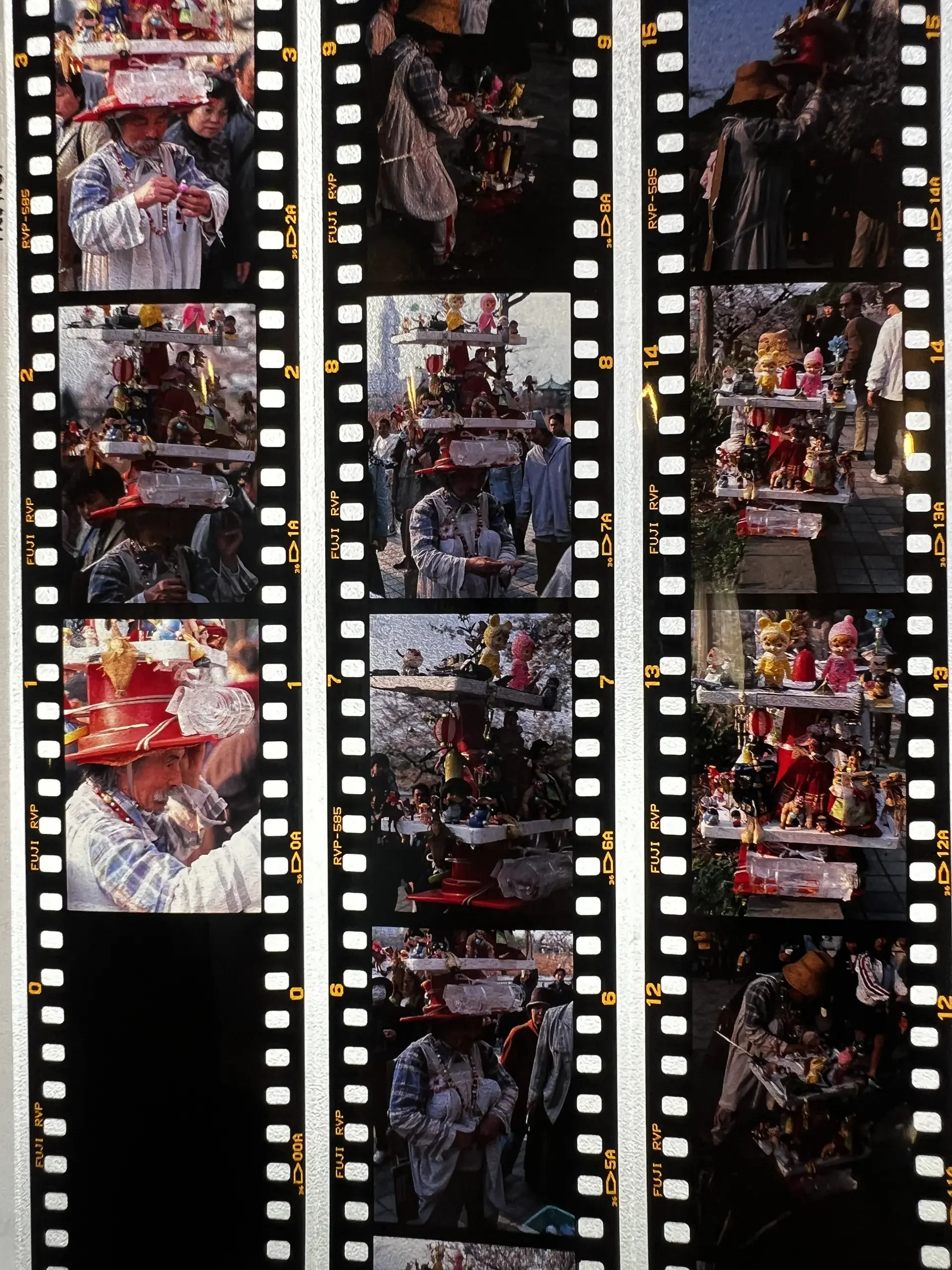Film vs. Digital: Best for Tokyo Street Photography?
Which is better, film or digital, for Tokyo Street Photography?
That's a tricky question to answer, as both formats offer significant advantages. Tokyo is a vibrant and busy place full of nooks and crannies just begging to be photographed. So, which is truly better: film with its authentic yet almost nostalgic look, or a digital sensor, which provides an opportunity to push, pull, and mould your image into whatever your heart desires?
With street photography, should our hearts desire? I think there was a certain degree, even as an observer, that as a document, you play a role; you're there, so it's best to stay out of the way. It's best not to be involved, but if you step too far away, can you really capture the essence of a heart in the sacred second that is a great street photograph? Should I edit it at all if I don't need to? What's the point of digital? Is it cheaper if I wanna be a real, true-to-the-street artist? Film may be the way to go.
Can I separate myself from all of those things? Can I use digital to capture this medium as it's intended? For me, the intention is about purity and capturing that pure moment. The moment we have all. It's highly palatable. It's emotionally palatable. It's everything all at once, frozen in time. That's a great street photo.
If you believe the above statements, then perhaps film is the way to go. As it offers far less opportunity to push and pull and edit and manipulate. Yes, you can scan a negative and manipulate it in Photoshop, Lightroom, or any other editing software you prefer. But I would suggest that negative is far less pliable than its digital counterpart. It becomes more about editing out the purity of the medium of film as opposed to the moment on the street. Indeed, both things are being affected, but I think shooting film almost erases the ability to edit; you're locked into that frame of film.
Again, if you take the above paragraph at face value, you could take that philosophy, that idea of a purity in the medium as well as a purity in the moment and apply that to your process of editing a digital negative. That is my choice, and it has been my choice since the onset of digital. I've made that choice for simplicity's sake. I was very fortunate to have shot miles and miles of film. I would often buy black-and-white film by hundreds of feet at a time and spool together my own rolls. At a certain point, I switched to colour film, and not long after that, I began to shoot reversal film. I did so for many, many years.
A contact sheet of reversal film of Tokyo street photography.
Colour reversal film was my film of choice. However, exposure latitude was very narrow. I just loved how it looked, and when I got a great street photo, there was nothing better than holding your slide up to the light and looking through it. There was a moment of purity in doing that, admiring this beautiful image, not for hubris or ego, but to appreciate its beauty. I miss those days, but when I miss them, I take one of the binders of negatives I have and look through them. When I find a winner, I hold it up and marvel at it.
Those days are gone, and now I live in a digital world. When I take a shot that I really love, one I feel like others will love too. I find myself doing the same thing. I can't pick my monitor up and hold it, but I do take time to marvel at the beauty of it, and how simple a single moment time can be.
That becomes the most crucial thing: the moment once captured, regardless of the medium, it's been frozen. It can be shared and viewed, thought about, and talked about. When that shutter clicks, you just made time tangible, and at the end of the day, that's really what photography is all about. Making those moments in our lives, whether they make us laugh or cry, ones that bring us joy, making that tangible so others can take a moment to appreciate it.
Which is better, film or digital?
That is a question no one needs to answer. The content within the frame is the only thing of importance.
As always, I would love to hear your story in the comments below. If you feel so inclined, share a coffee with me. I am a flat white kind of guy. Happy shooting, everyone.
